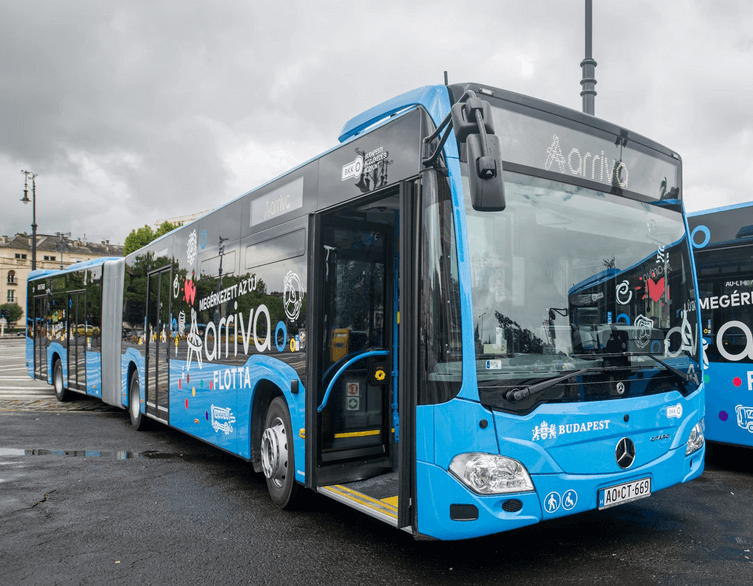Budapest Named Among World’s 50 Most Innovative Cities for Food Waste Solution

Budapest has just earned a prestigious spot among the world’s most innovative cities, and it’s all thanks to a brilliant idea that could revolutionize how we handle food waste. The Hungarian capital has been selected as one of 50 finalists in the Bloomberg Philanthropies 2025 Mayors Challenge, a global competition that celebrates bold and achievable solutions to urban challenges.
A Bold Vision to Transform Food Waste
Out of more than 630 applications from cities worldwide, Budapest’s innovative project caught the attention of international judges. The city’s winning proposal centers around creating a municipal processing facility that would transform unsold but still perfectly edible fruits and vegetables from local markets into nutritious, semi-prepared, or ready-to-eat foods.
Picture this: instead of watching fresh produce go to waste at the end of market days, Budapest would collect these items and transform them into sliced and frozen vegetables, jams, pickles, and other preserved foods. These products would then find their way into public catering services, primarily feeding children in schools and residents in elderly care facilities.
The project represents a multi-layered approach to urban sustainability. Not only would it dramatically reduce food waste, but it would also improve nutrition for some of the city’s most vulnerable populations while supporting the circular economy and creating new revenue streams for local producers who previously couldn’t sell their quality produce.
A Complete Municipal Solution
What makes Budapest’s proposal particularly compelling is its comprehensive approach. The entire supply chain would be coordinated by the Municipal Government, from procurement and processing to transportation and distribution. This municipal oversight ensures transparency, efficiency, and long-term sustainability while keeping the project firmly rooted in public service rather than private profit.
Best deals of Budapest
The mayor first introduced this innovative concept in a video presentation during winter 2024, and now it’s gaining international recognition as a model for sustainable urban food systems.
Competing with Global Innovators
Budapest finds itself in impressive company among the 50 finalist cities, which represent 33 different countries and serve more than 80 million people combined. The competition is fierce, with cities from Ethiopia to Japan, Colombia to Finland, Ukraine to Canada all bringing their most creative urban solutions to the table.
Some of the remarkable competing projects include Barcelona’s comprehensive intervention to expand green spaces and reduce urban heat islands, Detroit’s digital platform for centralizing property data, and Ghaziabad’s initiative to produce white roof paint from organic waste to combat urban heat effects. Meanwhile, Yonkers is organizing local civil networks to support elderly residents at home, Seoul is using artificial intelligence to identify online child protection risks, and Cape Town is improving sustainable water management through community engagement.
Recognition and Financial Support
Being named as a finalist comes with immediate benefits. Each of the 50 selected cities receives $50,000 in funding to test and further develop their innovative ideas. This summer, the finalist cities will also participate in an intensive “Ideas Camp” in Bogotá, where they’ll receive feedback and inspiration from international experts and fellow innovators.
The stakes get even higher in January 2026, when the top 25 projects will receive additional funding of $1 million each to fully implement their solutions. This represents a significant investment in urban innovation and a chance for Budapest to become a global model for sustainable food systems.
More Than a Decade of Urban Innovation
The Bloomberg Philanthropies Mayors Challenge has been fostering municipal innovation worldwide for more than ten years. Through five previous competitions, 38 cities have received substantial support, and their innovative ideas have spread to over 300 additional cities globally. This ripple effect demonstrates how local solutions can inspire global change.
As James Anderson, head of the Bloomberg Philanthropies government innovation program, explains, local government represents the level where policy truly meets people, where public services create real change and build trust. The finalist cities stand out because they don’t just think creatively but seek achievable and impactful responses to urgent problems.
What This Means for Budapest Visitors
For tourists visiting Budapest, this recognition highlights the city’s commitment to sustainability and innovation. As you explore the famous Central Market Hall or any of the city’s vibrant farmers’ markets, you’re witnessing not just traditional Hungarian commerce but the foundation of a revolutionary approach to urban food systems.
The project also reflects Budapest’s broader commitment to environmental responsibility and social care, values that permeate the city’s approach to urban development. When you dine at local restaurants or visit community facilities, you’re experiencing a city that’s actively working to reduce waste, improve nutrition, and create sustainable economic opportunities.
A Model for Sustainable Urban Living
Budapest’s selection as a finalist represents more than just international recognition; it showcases the city’s role as a forward-thinking urban center that balances innovation with practicality. The food waste processing project embodies the kind of comprehensive thinking that makes cities more livable, sustainable, and socially responsible.
The initiative demonstrates how cities can address multiple challenges simultaneously. By tackling food waste, the project also addresses nutrition inequality, supports local farmers, reduces environmental impact, and creates new economic opportunities within the circular economy framework.
Looking Toward the Future
As Budapest prepares for the Ideas Camp in Bogotá and works toward the final selection in 2026, the city is positioning itself as a leader in sustainable urban innovation. Whether or not it ultimately receives the additional million-dollar funding, the project has already garnered international attention and validation for its approach to municipal sustainability.
For visitors to Budapest, this innovation represents the forward-thinking spirit that characterizes the city. As you explore its historic streets, enjoy its thermal baths, and experience its cultural offerings, you’re also witnessing a city that’s actively shaping the future of urban living.
The recognition from Bloomberg Philanthropies places Budapest alongside global leaders in urban innovation, confirming what many visitors already know: this is a city that successfully balances its rich historical heritage with bold visions for a sustainable future. The food waste processing project is just one example of how Budapest continues to evolve as a model for thoughtful, inclusive, and environmentally conscious urban development.
Whether you’re sampling local cuisine at the Great Market Hall or simply enjoying the city’s commitment to green spaces and sustainability, you’re experiencing a destination that’s not just preserving its past but actively building a better future for urban communities worldwide.
Related news














